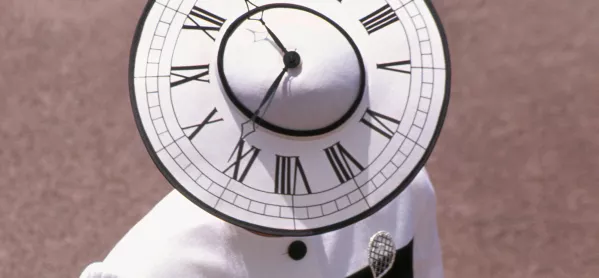Teachers who deliver quick-fire lessons in which pupils are encouraged to be the first to put their hands up may be getting it wrong, according to new brain science research.
Neuroscientists who asked 90 pupils to carry out a series of maths and science puzzles based on challenging misconceptions found that those who took longer to respond tended to answer more accurately.
The scientists say this ability to stop and think - known as “inhibitory control” - is a key part of learning.
Professor Michael Thomas, director of the Centre for Education Neuroscience, will present the research at the London Festival of Learning today.
He said: “We all have to learn things that are at odds with oeverydayday experience, and that’s the nature of maths and science learning.
“So maybe you’ve just learned four is bigger than two: then you have to learn that a quarter is smaller than a half.
“To understand that, you have to understand that your existing knowledge may mislead you.
“Sometimes the thoughts you don’t have are as important as the thoughts you do.”
To explain this, researchers highlight how children have to understand that the earth is round even though it may look flat to them.
Taking time to answer questions
Their findings suggests that pupils who take longer to answer are more likely to be able to grasp and correct their own misconceptions.
Encouraging pupils to take time to answer such challenging questions could help them to build knowledge and understanding, the researchers suggest.
Researchers carried out a series of 48 maths and science tests with pupils at an urban secondary school.
On each trial, participants read a statement relating to science or maths, and pressed one of two keys to indicate whether they thought the statement was correct or incorrect.
The team also carried out brain imaging on pupils while they did the tasks - and this confirmed the involvement of “inhibitory neural circuits” when pupils were thinking about what researchers describe as “counterintuitive maths and science concepts”.
The research is part of the UnLocke project, funded by the Education Endowment Foundation and the Wellcome Trust, to investigate the effectiveness of training inhibitory control for teaching maths and science to school children across England.
Prof Thomas added: “When you look at what children do, you can’t see whether they are suppressing irrelevant knowledge - but when they fail to do that, they make mistakes.
“Neuroscience can show us what’s going on inside the brain. And with the type of exercise that the Unlocke Project is using, we can train children to stop and think, and to pause before responding.”




